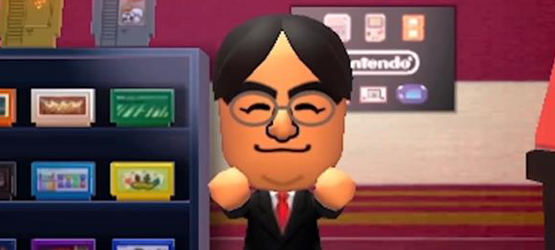Yesterday, the games industry lost Satoru Iwata, Nintendo’s CEO and president. His loss is something that cannot be overstated, as his influence on the current market is almost immeasurable. Besides discussing how Iwata has influenced our lives personally, the Daily Reaction crew also looks at where we currently are, and how lucky we are to still have so many of the founding members of the industry still with us.
Dan: Last night when I heard about the passing of Iwata, much like everyone else, I felt an immediate sadness wash over me. While my time on a Nintendo platform has been almost non-existent over the last few years, I had been trying to catch back up and see what I have been missing. Not because of work, but simply because Nintendo was a major part of my younger years and I wanted to revisit some of my roots. So, when I heard the news, I immediately realized that we had lost someone who had not only touched countless lives, but was also a significant influence on our industry.
Besides his work on many other influential titles, his work on the Super Smash Bros. franchise will always be the hallmark I will remember him by. Not because it is my favorite Nintendo franchise, but because it kicked off a new style of development for Nintendo that they have been embracing over the last decade. Looking at the launch of the DS and the Wii, Iwata was able to push development outside of what many of us considered realistic for a major publisher, and show that the industry can step outside of the box and become profitable.
Looking past all of the grief and sadness, Iwata’s passing has also left us with a reminder that we are still very young as an industry, and that we were lucky enough to watch one of industry’s giants at work. We are surrounded by numerous people shaping the future of our little world everyday, but we spend so much of that time complaining and nagging about trivial things that many of us fail to appreciate just how lucky we are.
If we look at just about every other major form of media, they have roots that lead to names that are little more than marks in history, as many of us were not around to fully comprehend what they really did. Whether it was Mozart or even more contemporary musical influences such as The Beatles or Elvis, they came during a time before many of us were around, even though we are still reaping from what they had to offer the world. The exact same can be said for the film industry, with Alfred Hitchcock, George Melies, Walt Disney, or Orson Welles, who helped shape modern film during a time when most of us weren’t around.
But, the thing is, is that we are around now to watch our industries first steps being taken, and while we have already gotten off the ground, we are still far from hitting our full stride. So, while we all should be sad for the loss of someone so special to many of us, we should also take this moment to realize that we are sitting in the golden age of our industry, and try not to take it for granted quite so much.
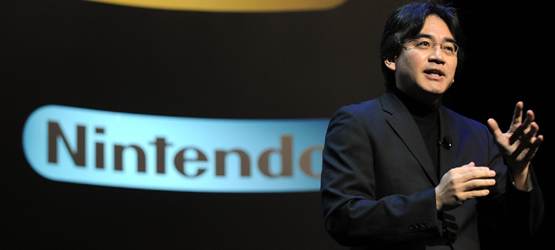
Chandler: First of all, I refuse to believe that Walt Disney is dead. They have his head cryogenically frozen in a jar, and if you’ve seen either Fringe or Futurama, then we know that there’s plenty of hope to see Mr. Disney again. All kidding aside, you are right, Dan. These individuals are the ones that set the cornerstones and foundations of their respective industries, and the games industry is a fledgeling one that hasn’t been around long enough to see it lose a lot of its greats yet. Compared to music and film, video games are still very much in their infancy, or at least coming into their terrible twos…
The loss of Satoru Iwata at such a relatively young age got me thinking about the other industry giants and the fragility of life. It’s not something I want to think about, but one day — hopefully far, far in the future — we’ll be reading these same types of articles for figures like Shuhei Yoshida, Hideo Kojima, Shigeru Miyamoto, and many others that have touched our lives with the incredible work they have done in a medium that we and they are so passionate about. Already as I grow older, I’m starting to see legends and icons that I took for granted in other media pass away, whether of old age or through tragic events.
A lot of the people who make games happen may not have as much of a public face as a high profile actor or musician, but it doesn’t make the work that they do any less special or impactful. Take a moment to consider each item on this list. Pokemon. Earthbound. Wii. DS. Mario. The Legend of Zelda. Animal Crossing. Super Smash Bros. Melee. Even if you didn’t know who Iwata-san was at the time, if any of these impacted you, he brought a little bit of gaming to your life.
I know when I was a kid playing Pokemon Gold I didn’t care about who had helped with the game. I don’t think my wife originally based her purchase of a DS or Animal Crossing off of Satoru Iwata’s involvement. But he still held a part in these things that brought us immense amounts of joy and evolved much of who we were and are as gamers. He was at the head of a company that doesn’t need a seat at the grown-ups table, because Nintendo unleashed the kid inside all of us. Iwata was all about fun, joy, wonder, and a sense of gaming as simple entertainment and he wore the Nintendo mantle proudly through all of his incredibly dedicated hard work with them.
I look now at the vast library of games, consoles, and peripherals that have brought me countless hours of entertainment and realize that my life has been touched by a huge number of people that I tend to take for granted. We look on our industry and see that most of our favorite people are still there. Life is a fragile thing though, and we won’t have them forever. We’ll have our Robin Williams. Our Michael Jacksons. Our John Lennons. We’ll look back on their legacy, what they did for the industry, the joy that they brought us, and perhaps most importantly, how they helped move and shape the growth of something we’re so passionate about. But today? Let’s enjoy the fact that they are still with us, crafting that legacy they will leave behind.
Feel free to send your regards in the comments below, as well as email us your thoughts to DailyReaction@PlayStationLifeStyle.net or find us on Twitter @Foolsjoker and @Finchstrife.
Check out more of us reacting daily on Daily Reaction here.
Daily Reaction: The Slideshow
-
Are Villains Really the Star of the Show? – The Joker, Call of Duty and Until Dawn
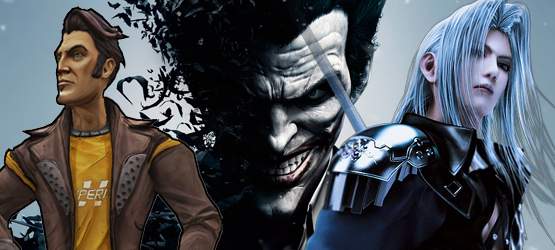
A great hero is nothing without an opposing force to drive him, her, or it forward, and we explore the villains, antagonists, and foes in both likely and unlikely places.
-
PS Plus Vote to Play – Are We Generalizing Indie Games?
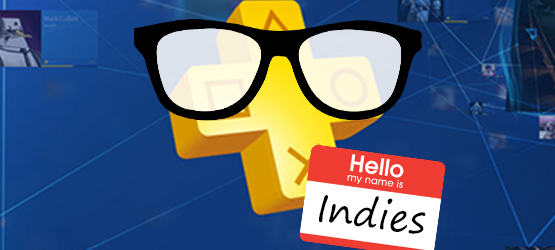
The term "indie" has been slung around the industry to mean low budget garbage, but are we being unfair to a subsection of the industry that leads in innovation and creative freedom?
-
How Sharing Is Changing the Industry – PSN and the Share Button

The ability to easily share our experiences has vastly changed how we game and how the rest of the world perceives video games. Just how much is sharing changing the gaming landscape?
-
Cracking Down on Xbox One Cloud Computing
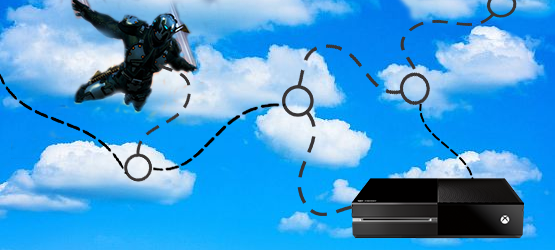
Despite the punny title referencing Crackdown 3, we actual drool over the possibilities that the cloud can offer as Microsoft shows off their latest footage featuring multiple servers worth of full destructibility in the world, while we also cite some minor concerns we may have with the tech.
-
Microsoft’s gamescom 2015 Press Conference Impressions

Microsoft finished their 2015 press conference at gamescom and it was a solid showing. Here are our blow-by-blow impressions of what Microsoft had to show off.
-
Guitar Hero Live and Rock Band 4 – Rhythm Games’ Encore

Rhythm games are coming back, but do gamers want the encore? Find out more about our history with the genre and what we are (or aren't) looking forward to when plastic instruments make a comeback.
-
Can a PlayStation Plus Voting System Make Gamers Happy?

Trying to appease unhappy gamers, Sony is giving them a choice to vote on the free Plus games for certain months. Will gamers still find a way to complain, or will this help ease the pain of feeling slighted by "bad offerings?"
-
Ouya’s Downfall and the Home Console Market

R.I.P. Ouya. We hardly even knew ya. In this edition we throw back all the way to the first Daily Reaction that talked about the Ouya and how it might be able to alter the gaming landscape. Have our views since then changed?
-
Are Gaming Accessories Important? VR, Fight Sticks and Gaming Headsets
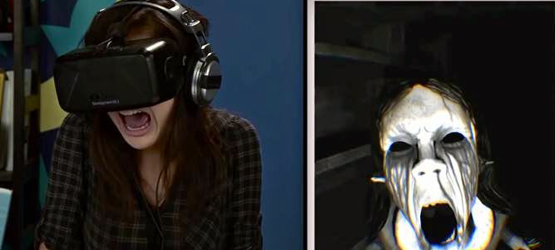
Peripherals such as headsets, VR, plastic instruments, and motion wands can alter the way that we experience games, but are they required or even important to the gameplay experience?
-
Console vs PC: Rounds 1 and 2

Read the Daily Reaction Part 1 here.
Read the Daily Reaction Part 2 here.Console gamers and PC gamers often butt heads on which is better, but which one is truly the victor? We examine the pros and cons in multiple aspects of these platforms in this two part article.
-
Kickstarting Shenmue III, Broken Age, and More – Money Where Your Mouth Is
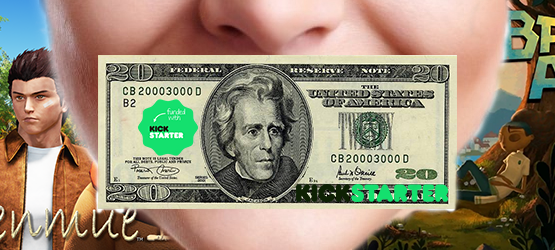
Kickstarter is a platform that can be used to gauge market interest by requiring consumers to put their money where their mouth is. Is this a good home for games that are demanded, but may not be financially viable?
-
How Important Is 1080p and 60fps and Overall Graphical Fidelity?
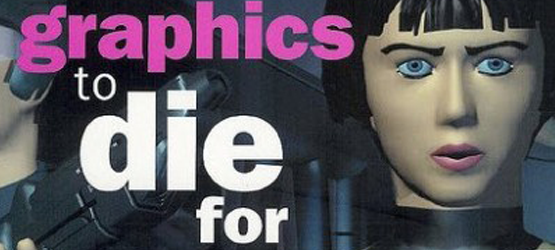
Graphics and visual fidelity are a massively debated factor in games, with some people attributing a high value to the magic numbers of 1080p and 60 frames-per-second. Is there a point where visual fidelity just isn't as important as other factors?
-
Clamoring for Information: The Desire to Know More
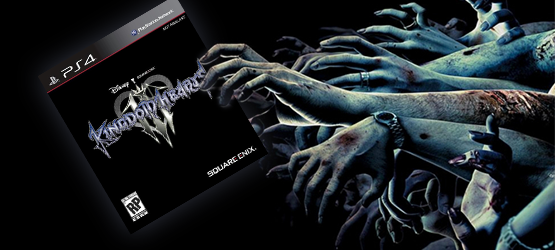
We're constantly pawing at any new bit of information that we can find out about games, but the information ebbs and flows in our industry. Does our desire to know more cause releases to be little more than a flash in the pan?
-
Remembering Our Giants – The Loss of Nintendo’s Satoru Iwata
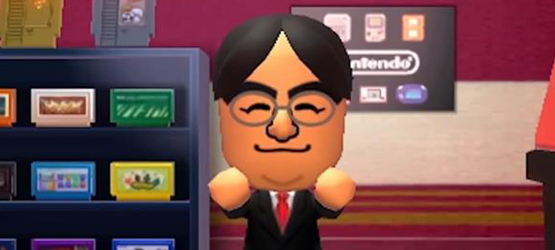
Nintendo's President and CEO has passed away, which makes us realize the fragility of life and relative infancy of the gaming industry.
-
A Dangerous Minefield of Video Game Spoilers
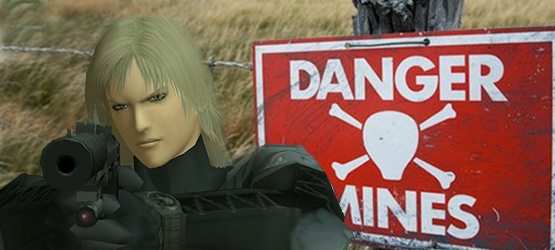
There are certain parts of an experience that hinge on the unknown, the mystery, and the surprise. Metal Gear Solid 2 swapping Snake out for Raiden? Aeris' fate in Final Fantasy VII? These are just a small sampling of the kinds of things that can have an impact if they are spoiled prior to a first experience and we're looking at how the unknown crafts a sense of wonder.
-
PSN Down - Does it Matter?

So the PSN is down again. Maybe not right now, but if history has taught us anything, it's that Rome wasn't built in a day and the PSN goes down periodically. Does the loss of our network connection really matter that much though?
-
The Last of Us 2: What We Want and What We Don't
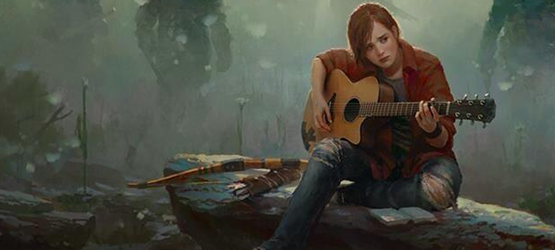
Nolan North has seemingly outed the existence of The Last of Us 2, and while Naughty Dog and Troy Baker both claim ignorance, we wanted to share our conflicting thoughts on what we want and what we don't want in a sequel to one of the greatest PlayStation games ever.
-
How Technology Will Push the Horror Genre Forward
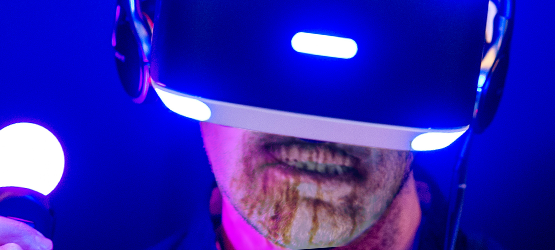
P.T. may be a distant memory, but new and coming technologies could change the face of horror games as we know them, allowing for fresh and immersive ways to be scared.
-
How Early is Too Early to Announce a Game?
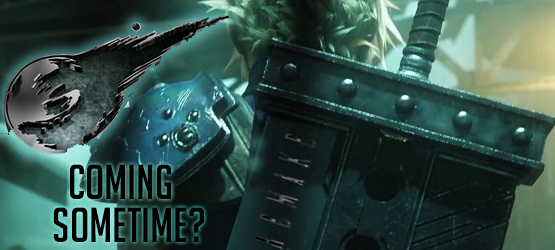
When should developers and publishers reveal their games? Can the strategy for timing between reveal and release impact a game's development and sales performance?
-
Has Nintendo Stepped Down From the Big Three?

Nintendo, Sony, and Microsoft have long been considered the "Big Three" in the console games market, but has Nintendo abandoned their seat at the table?
-
Is Backwards Compatibility Forward Thinking?
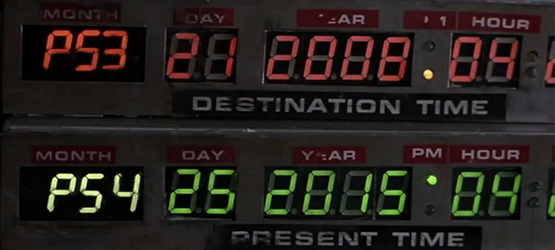
Microsoft announced backwards compatibility for the Xbox One at E3 2015, but is the time and money spent to make it happen forward thinking for the console market?
-
Oculus Rift vs. Project Morpheus - Pre-E3 Announcements

Project Morpheus and Oculus Rift are the primary contenders in the battle fro VR supremacy, and we compare the currently known specs and features.
-
Games, by Gamers, for Gamers
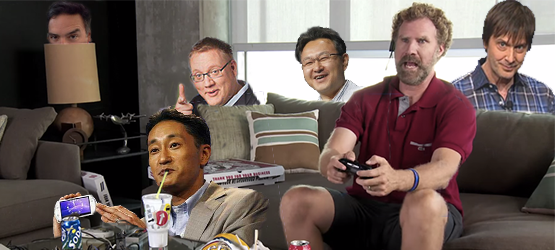
Many of the video game industry's biggest names are gamers themselves, and we talk about the importance of games by gamers, for gamers.
-
The Evolution of Discovery

Games have become about something more than simple high scores or arcade competition. We explore the evolution of the ability to discover in video games.
-
Countdown to E3 2015: Tips on How to Spend the Next 10 Days
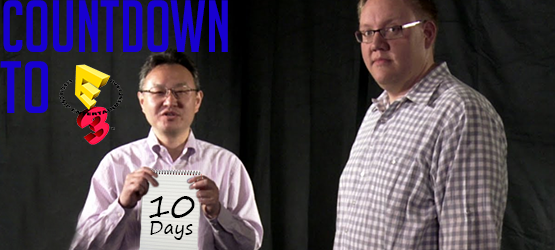
The wait for E3 can be a difficult one, so we're offering you some ways that you can make the wait more bearable. Are you reading this after E3? There are still plenty of entertaining pictures to accompany each suggestion. You can't go wrong with a Reggie Photoshop!
-
The Pros and Cons of App Based Extended Content
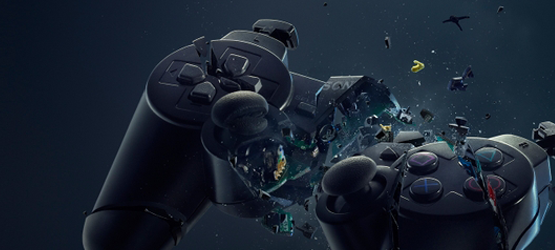
Some games have expanded beyond the screen in our living room by allowing our phones to connect with the game. Which ones are successful and which ones are unnecessary?
-
The Strategy Behind Having E3 Press Conferences
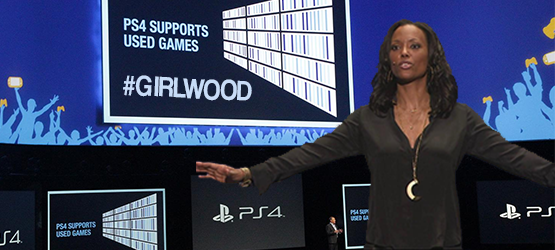
May I have your attention please? If you'll direct your eyes to the center of the stage, we'll be talking about why the major players in the industry hold E3 press conferences.
-
The Difficulties of Keeping an Embargo

As games journalists we have access to privileged information that we may not be able to reveal. Finding a balance between bringing content to our readers and maintaining positive PR relationships is crucial to our continued operation.
-
Unfair Bullying of Developers Over Game Updates
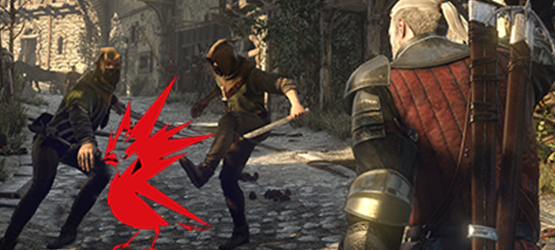
Game updates can create a stream of consciousness that a game is broken or that a developer took the lazy route during development. Is this treatment fair, or is the advancement of technology to allow for these updates an incredible thing?
-
Tempering E3 Expectations
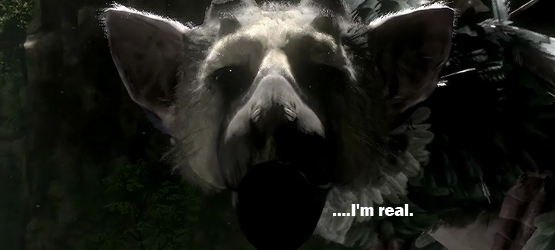
Building up expectations to unreasonable levels can lead to disappointment when they are not met. Expect us to talk about tempering those expectations to enjoy every announcement, even the unexpected.
-
Evaluating The Witcher 3's Graphical Downgrade
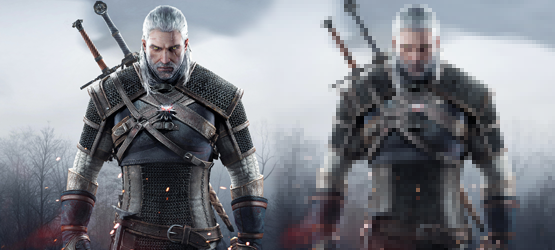
Accusations of The Witcher 3 being downgraded graphically from its reveal trailer have caused a bit of a stir, and we're taking our own look at the claims.
-
The Adventures of Dynamic and Static Storytelling

Dynamic storytelling allows for more player freedom, but limits the kind of story you can tell. Static Storytelling let's creators have control of the story, but is an on-rails experience for players. Which is preferred?
-
Reigniting Destiny's Fire with House of Wolves
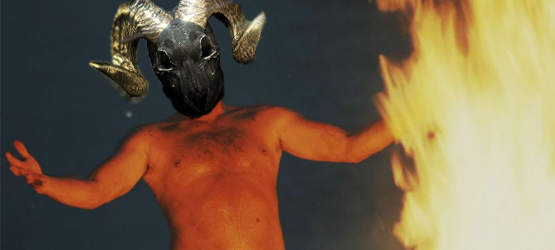
Did Destiny's second expansion reignite a fire that was snuffed out by The Dark Below?
-
Why Microsoft has the Right to Brick Consoles
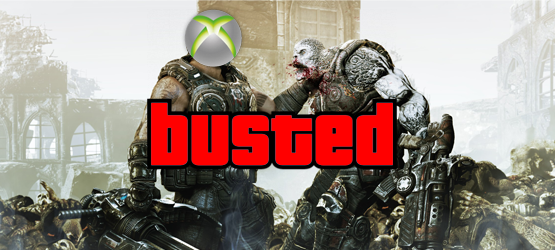
Do you ever read the terms of service? perhaps you should start, because we're looking at why companies may have the right to lock you out of content you think you own.
-
Always Online - The DRM Compromise
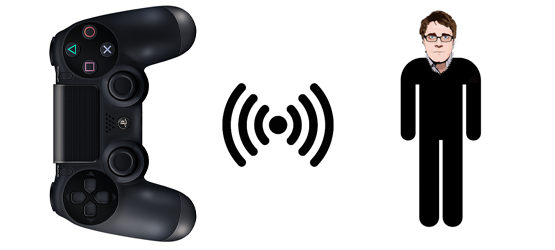
Advancements in technology are giving us increasingly connected worlds in our games, but are online components just hiding Digital Rights Management?
-
The Value of Gaming - How Much is Your Time Worth?

We spend a lot of money and time on our favorite hobby, but how do we measure the value of the money and time we spend on the games that we play?
-
The Backlog Problem
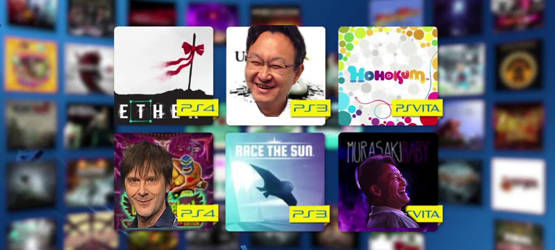
More and more games are coming out, more than we have time to play. With the rising number of games, there is also an increase to games that we want to play. Do we go back, or do we leave them behind?
-
Narrative vs. Experience - How are the Best Stories Told?
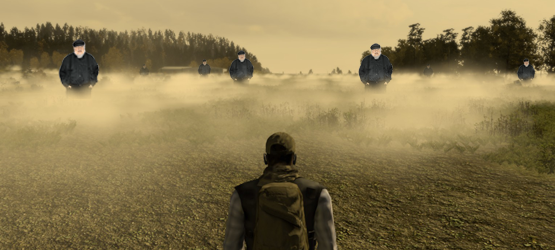
Would you rather be told a story or experience it for yourself? Is there a balance in a game telling you about a narrative point versus playing through it?
-
What Makes a Perfect Star Wars Game?
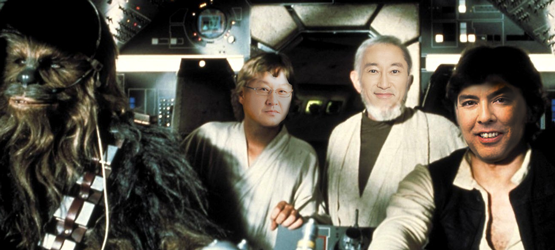
Everybody loves a good Star Wars game, but what makes the best Star Wars game? We take a stab at what we want to experience and what combined elements would bring balance to the Force.
-
Has PlayStation's Powers TV Show Failed?

Numerous mixed reviews and a lack of solid marketing have left the critical future of Powers in limbo. Though there will be a season two, we explore whether the series has already failed in its intention to bring a streaming exclusive to the PSN.
-
Information Leaks - Do They Hurt the Industry?

Games are a huge endeavor, and as such, information is not easy to contain. If something gets leaked outside of marketing's planned strategy, how does that impact the developer, publisher, and the rest of the games industry?
-
HD Remastered Edition - Does Recycled Content Hurt the Industry?
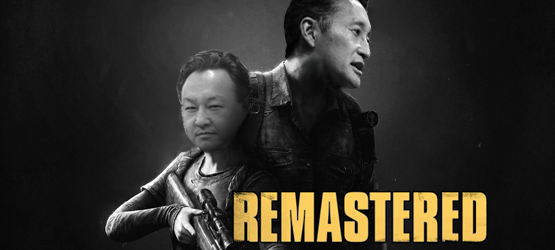
Daily Reaction is back in a new form, and our first post is talking about HD remasters and the trend of making what's old new again. Should we be living in an HD version of the past?
